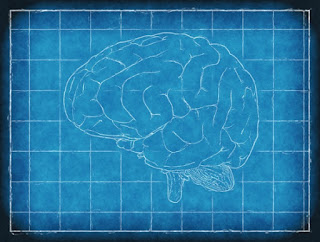The Non-Evolution of Consciousness
Back in 1976, the late Bernie Kliban, famous for odd drawings including the "Cat" series, had a comic called People Humiliating a Salami. It is funny because inanimate objects do not have self-awareness. A computer does not get angry about what programs a user opens, and an MP3 player has no objection to repeating the same song a dozen times. Humans have self-awareness, and some animals have a bit. Scientists, like regular people, have wondered about the location and origin of consciousness and the soul.
 |
| Credit: Pixabay / Pete Linforth |
Last month [July 2021], New Scientist magazine called consciousness “the greatest mystery in the universe.” The writers in this special issue on consciousness affirm that consciousness resides in the brain, “the most complex thing in the universe.” Theoretical physicist Michio Kaku added that“The human brain has 100 billion neurons, each neuron connected to 10,000 other neurons. Sitting on your shoulders is the most complicated object in the known universe.” As long as humans have existed, people have sought to comprehend the brain. Although scholars have tried to decipher its codes for centuries, we’ve only scratched the surface.The more we learn about the brain, the more complex we realize it is, no matter how complexity is measured. Likewise, the more we learn about consciousness, the more complex we realize it is by any estimation. How a three-pound physical jelly-like brain creates the feeling of consciousness “is one of life’s greatest mysteries.” Humans experience consciousness by a sense of self observing and to some extent controlling circumstances. Consciousness includes the ability to form mental pictures of past visual events and mental reconstructions of past sounds, such as a musical performances.
You can read the entire article at "On the Origin of Consciousness by Naturalistic Speculation", if you've a mind to.